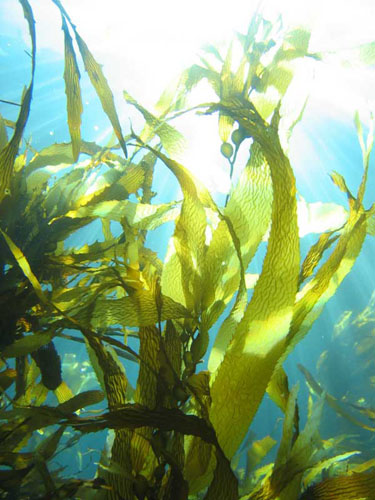Protist
| Protist | |
|---|---|
 | |
| Scientific classification | |
| Domain | Eukaryota |
| Kingdom | Protista |
Kingdom Protista or Protist, is a group of animal-like, plant-like and fungus-like organisms that are bound together with.... Aww forget it. Scientists created this category because the some single celled lifeforms and pond-scum-dwellers were not exactly animals or plants, but they were not bacteria either. As a result, giant kelp is technically more closely related to the paramecium than it is to grass.
Diversity[edit | edit source]
From Kosus to Kelp, these protists range from gigantic humanoid-looking creatures to microscopic organisms like Amoeba which causes fever or Plasmodium that live symbiotically with us and help us terminate Mosquitos. There are over 200,000 living species of Protists, living among humans, living in the sea and freshwater. Some highly-intelligent Protists, like those in Phylum Kofodarlorita, speak a highly sophisticated language similar to that of humans. Most, however, are mindless blobs that bump into things and eat them.
Phyla and their uses[edit | edit source]
- Phylum Rhodophyta Red Algae - strangling divers
- Phylum Phaeophyta Brown Algae (Kelp)- marine warfare
- Phylum Chlorophyta Green Algae - marine warfare
- Phylum Prryophyta (Dinoflagelattes) - use to create red tides in enemy's waters
- Phylum Euglenophyta (Euglena) - use to detect light
- Phylum Chrysophyta (Diatoms) - shells use to make glass and silica gel
- Phylum Clofolorita (Closest)- harassing people, divert their attention and make them feel queasy
- Phylum Rhizopoda (Amoeba) - used in bioterrorism
- Phylum Cillopora (Paremecium) - used to assassinate people
- Phylum Granuloreticulosa - useless
- Phylum Zoomastigina - rechargeable batteries that energize termites in order to destroy more wood, some are used to make sleeping pills
- Phylum Apicomplexa - use together with mosquito in bioterrorism to infect peple with diseases like malaria
- Phylum Arcasiomycota, Myxomycota and Ooomycata - use to rot vegetation and destroy enimies food supply (fishes and plants)
- Phylum Kofolorita (Kosus) - Feeds on the attention of humans by terribly irritating humans with a loud shriek
- Phylum Weldizyphorita - Has strange mind controlling effects that can destroy a person's brain if taken in dosages that are too small(e.g <100mg)
Structures of Protists[edit | edit source]
Cilia[edit | edit source]
Cilia, also known as Cilate's Hair, was originally thought to be found in Ciliates. However, scientists soon discover that Kosus also possess these hair-like structures. Cilia is used for locomotion(a.k.a. movin'), entangling prey and also as an other covering for ciliates and kofolorites(Kosus). penises are quite large amongst these organisms
Pseudopods[edit | edit source]
Pusedopods in rhizopods and kofolorites resemble the limbs of the human body. These pseudopods are permanently extended and they are used for walking and crawling. This explains why rhizopods and kofolorites are the fastest protists ever.
Flagella[edit | edit source]
Flagella are whip like structures found in some protists. Their function is to inflict pain on other organisms so that they will obey. the way it works is that it both swing like a whip and use its sharp end to sting the enemy
Origin[edit | edit source]
Believed to have come Outer space by asteroids that landed in Germany, these creatures, first discovered by Louis Pasteur. These Pre-tists(Ancestors of Protists) often mate with the Germs , which gave rise to Protists. Josh Cu is pretty gay
World War II[edit | edit source]
During World War II, the Allies tried to eliminate the germs in Germany. Many of they perished but a minority found that by exchanging DNA with these Pre-tists, they become stronger and resistant to the Allies. To take their revenge, they move to the military base in the Republic of Lee Kingdom and reside there. Today many of these Protists are highly effective weapons as many of them look like harmless plants while many of them can only be seen through a microscope.



